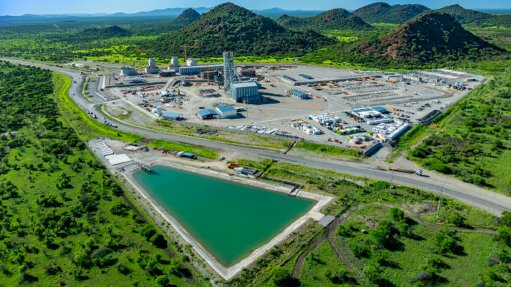Tough-talking Ecowas
I have always admired the Economic Community of West African States (Ecowas). Unlike the regional body in our neck of the woods, the Southern African Development Community (SADC), it does talk – and act – tough when any individuals or groups within its member countries fail to toe the democratic line.
Ecowas did not waste time in condemning the mutiny staged by a section of Mali’s armed forces earlier this month, which led to the ouster of President Ibrahim Boubacar Keita and his government.
The statement it issued in the immediate aftermath of the putsch was unequivocal: it denied any form of legitimacy to the coup plotters. To show these were not empty words, it immediately suspended Mali from all its decision-making structures and announced the closure of all land and air borders and the cessation of economic, commercial and financial flows and transactions between its member countries and Mali.
Readers of this column will recall Ecowas’s no-nonsense stance when the erstwhile Gambian dictator, Yahya Jammeh, tried a couple of little tricks to hang on to power after losing an election a couple of years back. In a show of military might, Ecowas amassed troops on the Senegal-Gambia border, and Jammeh had no choice but to flee into exile.
Since the Ecowas statement vis-a-vis the coup in Mali, just about every consequential international organisation – from the African Union (AU) to the United Nations (UN) – has voiced its concerns about the events in Mali. It’s quite ironic that the AU, which saw nothing wrong with the blatant election rigging in Malawi in 2019, including through the use of Tipp-Ex fluid to tamper with ballot papers, was among the most strident critics of the coup.
One hopes that this marks a new beginning for the AU, whose antecedent organisation, the Organisation of African Unity, was famously described by Yoweri Museveni as a trade union for dictators. That was back in 1986, when the Ugandan strongman was waging a war against the authorities in his country, whom he accused of all sorts of excesses. But Museveni has turned into an obnoxious dictator himself and has been at the helm of the East African country for the past 34 years.
But I digress. I was on about the contrast between Ecowas and the SADC. Just before the coup in Mali, Zimbabwe was a major talking point internationally. This followed the arrest – and harsh treatment while in remand prison – of a prominent journalist who had exposed corruption in high places. The same fate, and worse, befell opposition politicians and civil society activists who planned to stage a demonstration to highlight the Zimbabwe government’s excesses and the worsening economic situation in the country. This is exemplified by hyperinflation of about 800%, shortages of cash and fuel, and massive unemployment.
The international outcry – led by Western governments, the UN church organisations such as the World Council of Churches – was massive. But what was the SADC’s reaction? Dololo. It chose to neither see nor hear evil.
In all fairness, President Cyril Ramaphosa dispatched envoys to Harare to get a better understanding of what was happening on the ground. The envoys met with government representatives only, and reports from Harare suggest they were barred from meeting with other stakeholders, as had been scheduled. Questions were also raised about the impartiality of the envoys: Zimbabwe President Emmerson Mnangagwa is on record as saying Baleka Mbete is his close friend, while Sydney Mufamadi was part of former President Thabo Mbeki’s ineffectual mediation effort in Zimbabwe more than a decade ago.
As I have alluded to, the SADC was among the first bodies to congratulate the ‘winner’ of Malawi’s patently rigged elections in 2019. And it ended up with lots of egg on the face when that result was overturned by a court and the rerun was won by an opposition politician.
I could go on – the SADC’s faux pas are numerous.
Article Enquiry
Email Article
Save Article
Feedback
To advertise email advertising@creamermedia.co.za or click here
Press Office
Announcements
What's On
Subscribe to improve your user experience...
Option 1 (equivalent of R125 a month):
Receive a weekly copy of Creamer Media's Engineering News & Mining Weekly magazine
(print copy for those in South Africa and e-magazine for those outside of South Africa)
Receive daily email newsletters
Access to full search results
Access archive of magazine back copies
Access to Projects in Progress
Access to ONE Research Report of your choice in PDF format
Option 2 (equivalent of R375 a month):
All benefits from Option 1
PLUS
Access to Creamer Media's Research Channel Africa for ALL Research Reports, in PDF format, on various industrial and mining sectors
including Electricity; Water; Energy Transition; Hydrogen; Roads, Rail and Ports; Coal; Gold; Platinum; Battery Metals; etc.
Already a subscriber?
Forgotten your password?
Receive weekly copy of Creamer Media's Engineering News & Mining Weekly magazine (print copy for those in South Africa and e-magazine for those outside of South Africa)
➕
Recieve daily email newsletters
➕
Access to full search results
➕
Access archive of magazine back copies
➕
Access to Projects in Progress
➕
Access to ONE Research Report of your choice in PDF format
RESEARCH CHANNEL AFRICA
R4500 (equivalent of R375 a month)
SUBSCRIBEAll benefits from Option 1
➕
Access to Creamer Media's Research Channel Africa for ALL Research Reports on various industrial and mining sectors, in PDF format, including on:
Electricity
➕
Water
➕
Energy Transition
➕
Hydrogen
➕
Roads, Rail and Ports
➕
Coal
➕
Gold
➕
Platinum
➕
Battery Metals
➕
etc.
Receive all benefits from Option 1 or Option 2 delivered to numerous people at your company
➕
Multiple User names and Passwords for simultaneous log-ins
➕
Intranet integration access to all in your organisation

















